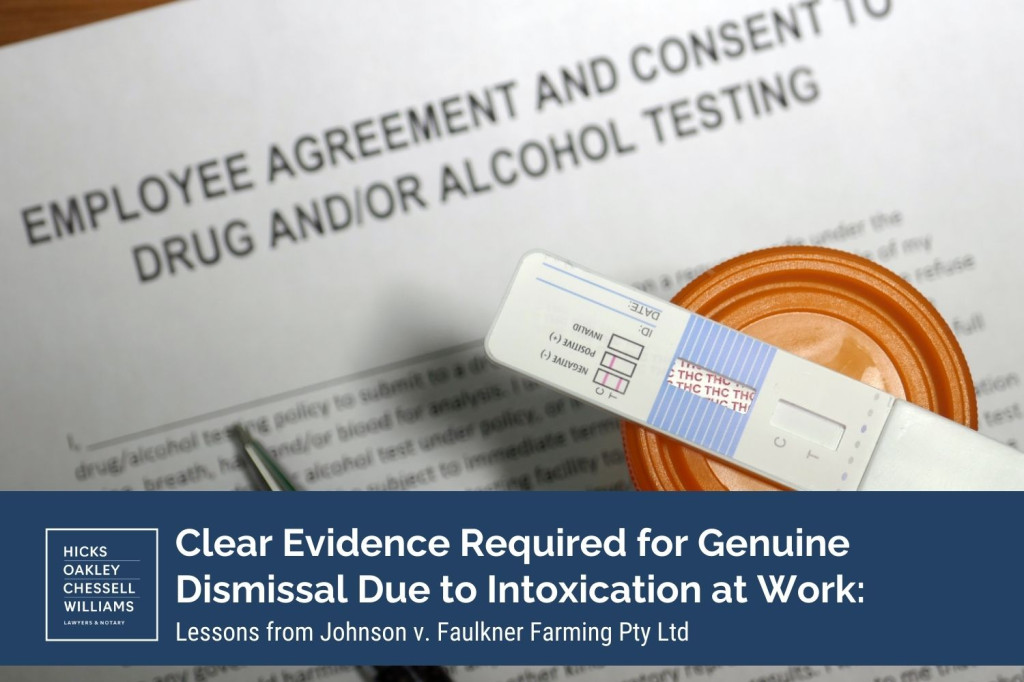Clear Evidence Required for Genuine Dismissal Due to Intoxication at Work
Employers often question whether they can terminate an employee suspected of being under the influence of drugs or alcohol based on their Drug and Alcohol Policy.
While the answer is generally yes, the employee’s conduct is evidently influenced by substances, 'grey zones' exist. These are situations where the employer has not followed procedural or evidentiary requirements when deciding to terminate employment.
This scenario was considered in the matter of Baydon Johnson v Faulkner Farming Pty Ltd [2024] FWC 1052.
Background
Mr Johnson commenced employment with Faulkner Farming in October 2022 as an Assistant Manager. He was aware of the employer’s drug and alcohol policy, having signed a declaration of understanding.
On 5 January 2024, he was dismissed for allegedly attending work intoxicated on 4 January 2024 following heavy drinking the previous night. The employer considered this serious misconduct and a breach of the policy and safety regulations.
Mr Johnson then filed an Unfair Dismissal Claim in the Fair Work Commission (FWC).
Issues and Decision
Mr Johnson argued that whilst he had drank alcohol on 3 January 2024, he was not intoxicated when he reported to work the next day, albeit 40 minutes late.
The employer made two critical errors:
They did not request a blood alcohol test to confirm his intoxication level on 4 January 2024
They allowed him to drive home after their initial meeting, suggesting he may not have been impaired.
Additionally, the termination letter was vague, citing that Mr Johnson “was disengaged and not wanting to be at work”, hinting at other factors influencing the employer’s decision to terminate his employment.
Taking these factors into consideration, the FWC reached the decision that Mr Johnson was unfairly terminated as there was no evidence to demonstrate that he was intoxicated on 4 January 2024.
However, Mr Johnson was compensated with $5,182.27 instead of being reinstated.
Key lessons to consider
Employers should have a Drug and Alcohol Policy, but it must be supplemented with mechanisms such as breathalyser tests, mobile testing services, and detailed observation notes on employee behaviour to ensure procedural fairness in dismissal cases.
Contact us today to learn how our experienced Employment Law team can help you navigate the complexities of intoxication-related workplace issues, ensure compliance with policies, and uphold procedural integrity.


